Wondering About Low T? Here are the Low Testosterone Symptoms You Should Know
Do you keep noticing commercials about Low Testosterone symptoms, or Low T, and wonder what exactly they are talking about? Are you wondering if you have Low T? We have yet to meet anyone nearing 40, or older, who sees these commercials and can consistently say I never feel like that with the same pep I did when I was younger. For healthy men, testosterone peaks at age 19 and goes down about 1-2% a year for the rest of your life. We are living 64% longer today than we were just one century ago and different parts of our body age faster than other. An unbalanced or depleted endocrine system has so many men are suffering from the symptoms of Low Testosterone. . . but they don’t have to suffer from what so many people just write-off as normal aging. <h2>What is Testosterone?</h2> Testosterone is a naturally occurring and very potent hormone produced in large amounts by all males (and in much smaller amounts in females). Production begins in the womb and then gradually increases for weeks from birth. Initially, it fortifies the development of male genitalia, then gradually affects every vital physiological system (muscular, circulatory, skeletal, reproductive, etc.) After reaching physical maturity, testosterone plays a major role in the healthy development of male sexuality. Testosterone levels drastically surge during the onset of puberty. Levels peak at 19, then level o and begin to drop by the mid-30s, by about 1% per year. <h3> What are the Low Testosterone Symptoms or issues from Low T?</h3> Except in cases of hypogonadism (medically low testosterone) when it occurs much earlier, most men begin to feel many of the symptoms of low testosterone by their 40s. It’s one reason why our physical and mental capabilities begin to diminish as we age, and it may even contribute to the following life and relationship altering conditions of Low T:- Loss of Muscular Mass and Strength
- Reduction in Bone Density
- Loss of Skin Elasticity
- Hair Loss/Male Pattern
- Baldness
- Erectile Dysfunction
- Depression
- Fatigue
- Loss of Concentration or Memory
- Weight Gain
- Gynecomastia
- Hot Flashes
- Lower Sex Drive
- Urinary Problems
- Sleep Problems
- Irritability
- Night Sweats
- Hypogonadism
- Adrenal Fatigue
- Thyroid Health
Wondering About Low T? Here are the Low Testosterone Symptoms You Should Know
sa_admin April 13th, 2023
Posted In: Uncategorized
Tags: Andropause, hypogonadism, irritable male syndrome, low t, low testosterone, low testosterone symptoms, male sexuality, testosterone deficiency
How does Testosterone Affect Sexual Health?
Can testosterone improve sexual health?
Many factors fuel the sexual health of men as well as their sexual performance, ability to perform and changes in their ability to function as they once could. Low testosterone plays a significant factor in all of these and treating Low T can improve interest in sex, sexual function and sexual performance.
The Effects of Low T on Sexual Health
While we do understand that testosterone production comes from a healthy HPA Axis, or communication between your Hypothalamus, Pituitary Glands, Adrenals and Testicles, science still does not understand exactly how testosterone improves sexual health or performance. As you probably noticed in High School, College or amongst your friends, there is no normal level of sexual interest amongst men or women.
Like your testosterone levels, it peaks around 19 and usually slowly declines for the rest of your life. Each person takes a different path, however, and declining sexual interest is typically tied to declining testosterone levels. These levels can follow a steady decline, or can be accelerated by health issues, stress, poor sleep and even by keeping sexually active. Many men can lose sexual interest at normal testosterone levels or maintain sexual health even at low testosterone levels but as testosterone levels get depleted it will universally effect sexual interest and performance.
One study of Men in the NE of the US showed 11% of men had a lack of sex drive. The researchers also found 28% of men with low testosterone levels had a low libido which means that men with low testosterone levels were 256% more likely to have low sex drive or low libido. The average age of the study participants was 47.
Low Testosterone and Erectile Dysfunction

Erectile Dysfunction, or ED, can be caused by many health problems including low testosterone, atherosclerosis (hardening of the arteries), diabetes, high blood pressure and high cholesterol. Those last three items all cause hardening of the arteries. If they are damaged, the penis has difficulty dilating and bringing sufficient blood flow required for an erection. Testosterone therapy can lead to increased libido and interaction and connection between the brain and penis.
Viagra is an example of an oral PDE5 inhibitors that encourage an increase in nitric oxide which dilates the blood vessels and encourages more blood flow to the penis. Three potent selective PDE5 inhibitors (sildenafil (Viagra; Pfizer), tadalafil (Cialis; Lilly), and vardenafil (Levitra; Bayer)) are currently available. Testosterone therapy will often increase the libido and sexual function to erase Erectile Dysfunction, but often our physicians will prescribe a combination with PDE5 inhibitors as well.
Studies are showing that men with classic hypogonadism, or low testosterone, have a reduced response to PDE5 inhibitors and see a significant response improvement with Testosterone Therapy. For patients who fail to see ED improvement following TRT and PDE5 inhibitors we can prescribe and test the direct injectable Trimix.
The Connection of Testosterone Levels and Sexual Health
 While this sounds like a juvenile sex joke, we are now seeing that lowered testosterone levels lead to a decreased sex life, but that a decreased sex life also can lower ones testosterone levels in a study at the University of Sydney in Australia.
While this sounds like a juvenile sex joke, we are now seeing that lowered testosterone levels lead to a decreased sex life, but that a decreased sex life also can lower ones testosterone levels in a study at the University of Sydney in Australia.
Researchers followed 1,700 men over the age of 70. The study asked questions and measured a number of things. The study tracked the ability to keep and maintain an erection. It measured the frequency that sexual activity led to ejaculation (through masturbation or sexual intercourse). The study also tracked libido and sexual health versus earlier times in their lives.
During the study, all of the men had blood tests regularly taken and the following tests measured: Total Testosterone, Free Testosterone, Estrogen, SHGB and some other hormones.
Researchers discovered a 10% reduction in testosterone levels led to a noticeable decrease in sexual activity but no change in the number of erections. Another study showed that testosterone levels increased on night after sexual activity without any increase on nights where there was no sexual activity. Physicians are concerned that a lack of sexual activity can accelerate low testosterone.
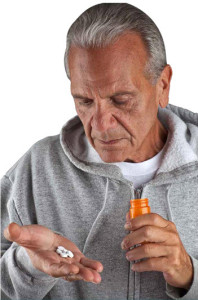 A further study showed that men taking Cialis had higher testosterone levels than men taking Viagra. Both drugs are PDE5 inhibitors to boost nitric oxide and blood flow to the penis. Cialis, however, last 36 hours for most people rather than 6-8 hours. Cialis users typically have more intercourse over this extended time period.
A further study showed that men taking Cialis had higher testosterone levels than men taking Viagra. Both drugs are PDE5 inhibitors to boost nitric oxide and blood flow to the penis. Cialis, however, last 36 hours for most people rather than 6-8 hours. Cialis users typically have more intercourse over this extended time period.
The researchers concluded that “as it is unlikely that the two drugs have a different direct effect on the pituitary-testis axis, this effect is probably due to the higher frequency of full sexual intercourse.”
A Chinese study observed a group of men that abstained from ejaculation for one week and had their testosterone levels tested each day. Research showed that abstaining for 6 days had no effect on testosterone levels, however, on the seventh day the testosterone levels surged to 145.7% of the baseline then plummeted on the 8th day.
The researchers believe the testosterone surge was the result of a negative feedback suppression of Luteinizing hormone (LH secretion) which is essential for testosterone production.
Hormone Therapeutics aims to help people looking to improve and optimize their health through natural means or through the guidance of our physicians.
Don’t miss out our free weekly tips and news on Low T, hormone balancing, healthy living, nutrition and a lot more.
Want more?

Sign up today and Get our ebook, ‘Naturally Increase Your Testosterone Levels’ absolutely FREE.
How does Testosterone Affect Sexual Health?
Saleamp Design November 15th, 2016
Posted In: Low T Info
Tags: atherosclerosis, Bayer, blood flow, boner, Cialis, diabetes, dilates, ED, erectile dysfunction, erection, high blood pressure, high cholesterol, hypogonadism, inhibitors, intercourse, Levitra, LH, LH secretion, libido, Lilly, Lutenizing hormone, nitric oxide, PDE5, PDE5 inhibitors, penis, Pfizer, pituitary, sex drive, sexual health, sexual performance, sildenafil, tadalafil, testes, testicles, testosterone level, testosterone therapy, trimix, TRT, vardenafil, Viagra
Here’s What You Should Know on How Testosterone Replacement Therapy Works
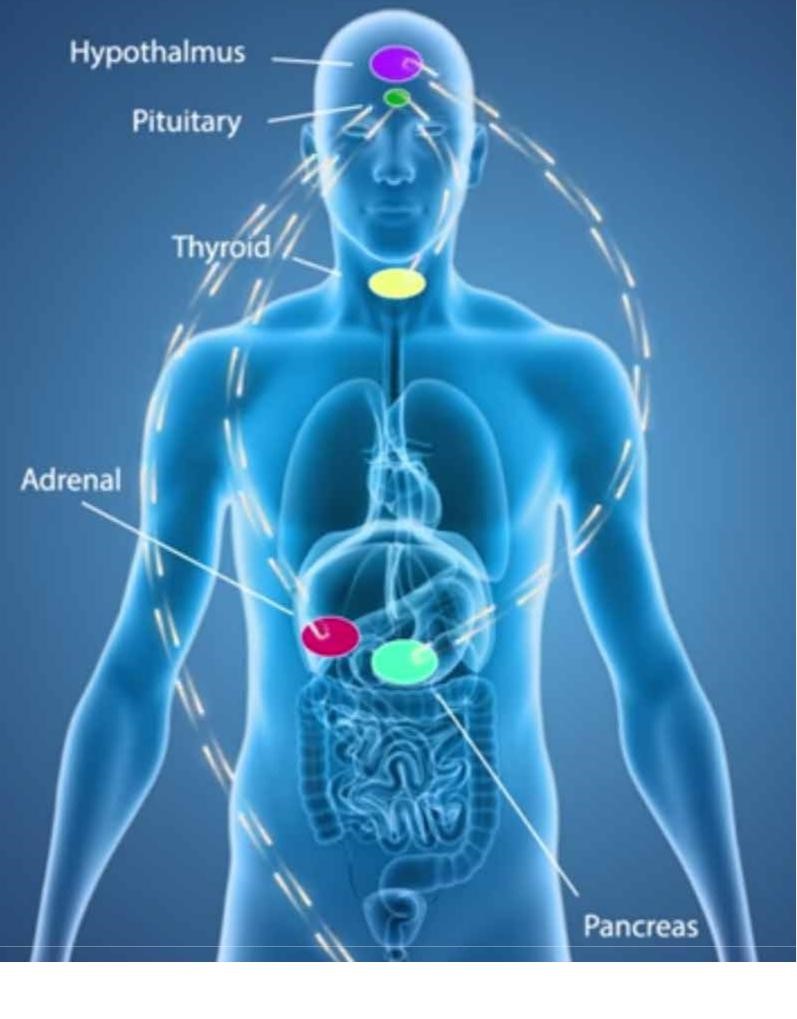 If you’ve been reading Hormone Therapeutics blogs and testosterone replacement therapy eBooks, you’re probably already completely aware of just how important testosterone is to male health. It boosts mental energy, physical energy, alertness, strength, sexual vitality, and just generally helps us live our lives better.
If you’ve been reading Hormone Therapeutics blogs and testosterone replacement therapy eBooks, you’re probably already completely aware of just how important testosterone is to male health. It boosts mental energy, physical energy, alertness, strength, sexual vitality, and just generally helps us live our lives better.
You might be wondering just how exactly it provides all these benefits, though. What’s the actual mechanism? What, precisely, does testosterone do?
The fact is, testosterone does all sorts of beneficial things in just about every part of the body. It’s a key hormone to maintaining our body systems, especially in men. Women actually also have small amounts of testosterone, but their bodies rely more on estrogen.
The importance of living with a fully functioning endocrine system has only really mattered this much in the past century as people are living longer due to improved medicine, sanitation and many other factors. 100 years ago the average life span was 48 and today it is 78 years. Many areas of the body do not hold up over time as well as others and require assistance like eye glasses, hearing aids or Lipitor. The same is true with balancing and optimizing the endocrine system through testosterone replacement therapy.
We now understand that a properly balanced endocrine system leads not just to the vanity aspects of it’s benefits but a healthier, happier, more effective and longer life.
Testosterone Replacement Therapy – How It Works
So to satisfy your scientific curiosity, here’s a high-level rundown of what testosterone does in men, across each main part of the body.
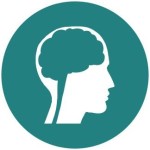 The Endocrine System
The Endocrine System
The endocrine system is where our bodies produce hormones. It’s a series of glands distributed around various parts of the body that, as a whole, keep our hormone levels at their proper levels.
Testosterone is a hormone, so it’s also produced by the endocrine system. The process starts in the brain at the hypothalamus. The hypothalamus tells the pituitary gland what the body’s overall level of testosterone should be. The pituitary gland then directs the testicles and, to a lesser extent, the adrenal glands to actually produce the stuff. This is called the HPA axis.
This is where Testosterone levels can be thrown off. Typically, hypogonadism is to blame for low testosterone levels, and can cause a multitude of health problems. Although it’s normal for testosterone production to peak at 19 and drop gradually over time, about 1% per year after age 30, for some people it can fall too fast. In those cases, testosterone replacement therapy is indicated.
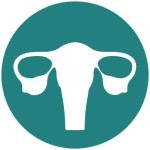 The Reproductive System
The Reproductive System
Testosterone production starts in male children surprisingly soon after conception. A seven-week old fetus has already developed enough to begin producing the hormone, as well as sperm.
If testosterone levels are too low later in life, a man can suffer from erectile dysfunction, low sperm count, and even prostate problems. Its bad news, and it’s why testosterone replacement therapy is so important under the right circumstances for men in need of hormone balancing and testosterone supplementation.
 Puberty
Puberty
Testosterone is responsible for male puberty, as well. It’s the reason we start growing hair in new places, our voice (and other things) drop, and our muscles start to develop.
When boys start to notice girls, that’s the work of testosterone, and it carries through later in life. Low testosterone levels can impact our libido, and it’s actually a two-way street. Periods of minimal sexual activity can actually cause testosterone levels to drop in response, which can cause erectile dysfunction and lowered libido. It’s a snake that eats itself, and it’s best avoided.
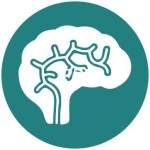 The Central Nervous System
The Central Nervous System
The central nervous system is how our body communicates with itself. It’s a network that lets glands and organs communicate to trigger production of hormones, among other things. Hormones, including testosterone, have all kinds of effects on the body and mind. Testosterone drives our competitiveness and self-esteem.
That means lowered testosterone levels can make us lose our motivation and spark. It can literally make us sad. Like sexual desire, it’s a two-way street. Engaging in competitive activities like sports can spike our testosterone, which in turn makes us more motivated to strive for success. Lowered testosterone can make us lose our motivation, and sitting around can further lower the testosterone levels.
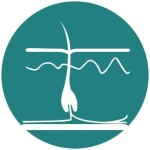 Skin and Hair
Skin and Hair
It starts at puberty. Hair starts growing in new and disturbing places. Pretty soon, we’ve got manly, hairy chests and armpits, as well as hair on points further south.
Testosterone is responsible for that, and lowered testosterone levels can have the opposite effect. Our body hair might actually start to fall out if testosterone gets too low!
The other thing about puberty, acne, is also an effect of testosterone. For that reason, you might need to stock up on some acne cream or gel when you’re undergoing testosterone replacement therapy. It’s a small price to pay for the benefits you’ll receive.
 Muscles, Fat, and the Skeleton
Muscles, Fat, and the Skeleton
Testosterone is a major factor in the development of our muscles, both size and strength. Testosterone levels work to improve our muscles in a few different ways.
- It stimulates neurotransmitter production, which in turn tell our muscles to grow.
- It tells the nuclear receptors in our DNA to synthesize protection.
- It increases growth hormone levels
What that means overall is that testosterone makes strength training more effective. If you’re been hitting the weights and not seeing much gain, low testosterone levels might be to blame. The male hormone is also important to our skeleton. It increases bone density, and it’s what makes our bone marrow manufacture red blood cells. If you have low testosterone production, you might actually become more brittle and prone to fractures.
Finally, testosterone is important to burning fat, and low levels can be responsible for a higher body fat percentage.
Overall, testosterone levels are vital to your physical health.
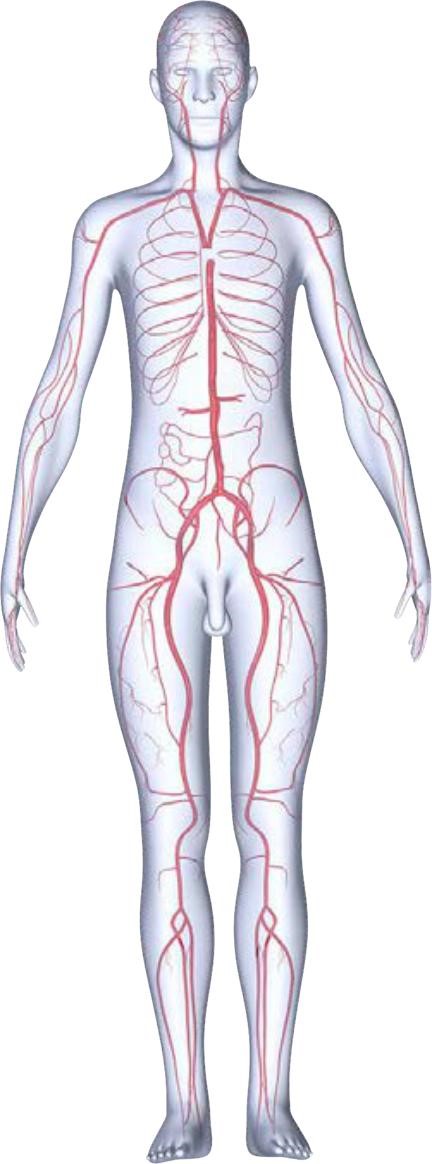 The Circulatory System
The Circulatory System
Finally, testosterone is crucial to the health of our blood. As mentioned, it improves our red blood cell count, which is a positive because it carries more oxygen throughout our body. However, a physician needs to monitor and manage red blood cell and hematocrit levels to ensure blood does not get too viscous.
Some studies have shown that testosterone replacement therapy can also make our hearts healthier. These studies suggest that the hormone is effective in reducing cholesterol and blood pressure. It can even help destroy harmful clots.
Although testosterone replacement therapy shouldn’t be undergone lightly and without the advice of a medical professional, its benefits are becoming more and more apparent. If any of the symptoms and problems mentioned in this article ring a bell for you, get in touch with a doctor today.
Hormone Therapeutics aims to help people looking to improve and optimize their health through natural means or through the guidance of our physicians.
Don’t miss out our free weekly tips and news on Low T, hormone balancing, healthy living, nutrition and a lot more.
Want more?

Sign up today and Get our ebook, ‘Naturally Increase Your Testosterone Levels’ absolutely FREE.
Here’s What You Should Know on How Testosterone Replacement Therapy Works
Saleamp Design October 18th, 2016
Posted In: Testosterone Therapy
Tags: adrenal, Andropause, cognitive, endocrine system, energy, fatigue, gonads, growth hormone, hair, HPA axis, hypogonadism, hypothalamus, libido, mental, muscles, pituitary, puberty, reproductive system, sex, skin, sperm, strength, testes, testosterone, testosterone levels, testosterone production, Testosterone replacement therapy, vitality
Wondering About Low T? Here are the Low Testosterone Symptoms You Should Know
Do you keep noticing commercials about Low Testosterone symptoms, or Low T, and wonder what exactly they are talking about? Are you wondering if you have Low T? We have yet to meet anyone nearing 40, or older, who sees these commercials and can consistently say I never feel like that with the same pep I did when I was younger.
For healthy men, testosterone peaks at age 19 and goes down about 1-2% a year for the rest of your life. We are living 64% longer today than we were just one century ago and different parts of our body age faster than other. An unbalanced or depleted endocrine system has so many men are suffering from the Low Testosterone symptoms. . . but they don’t have to suffer from what so many people just write-off as normal aging.
What is Testosterone?

Testosterone is a naturally occurring and very potent hormone produced in large amounts by all males (and in much smaller amounts in females). Production begins in the womb and then gradually increases for weeks from birth.
Initially, it fortifies the development of male genitalia, then gradually affects every vital physiological system (muscular, circulatory, skeletal, reproductive, etc.)
After reaching physical maturity, testosterone plays a major role in the healthy development of male sexuality. Testosterone levels drastically surge during the onset of puberty. Levels peak at 19, then level o and begin to drop by the mid-30s, by about 1% per year.
What are the Low Testosterone Symptoms?
Except in cases of hypogonadism (medically low testosterone) when it occurs much earlier, most men begin to feel many of the symptoms of low testosterone by their 40s. It’s one reason why our physical and mental capabilities begin to diminish as we age, and it may even contribute to the following life and relationship altering conditions of Low T:
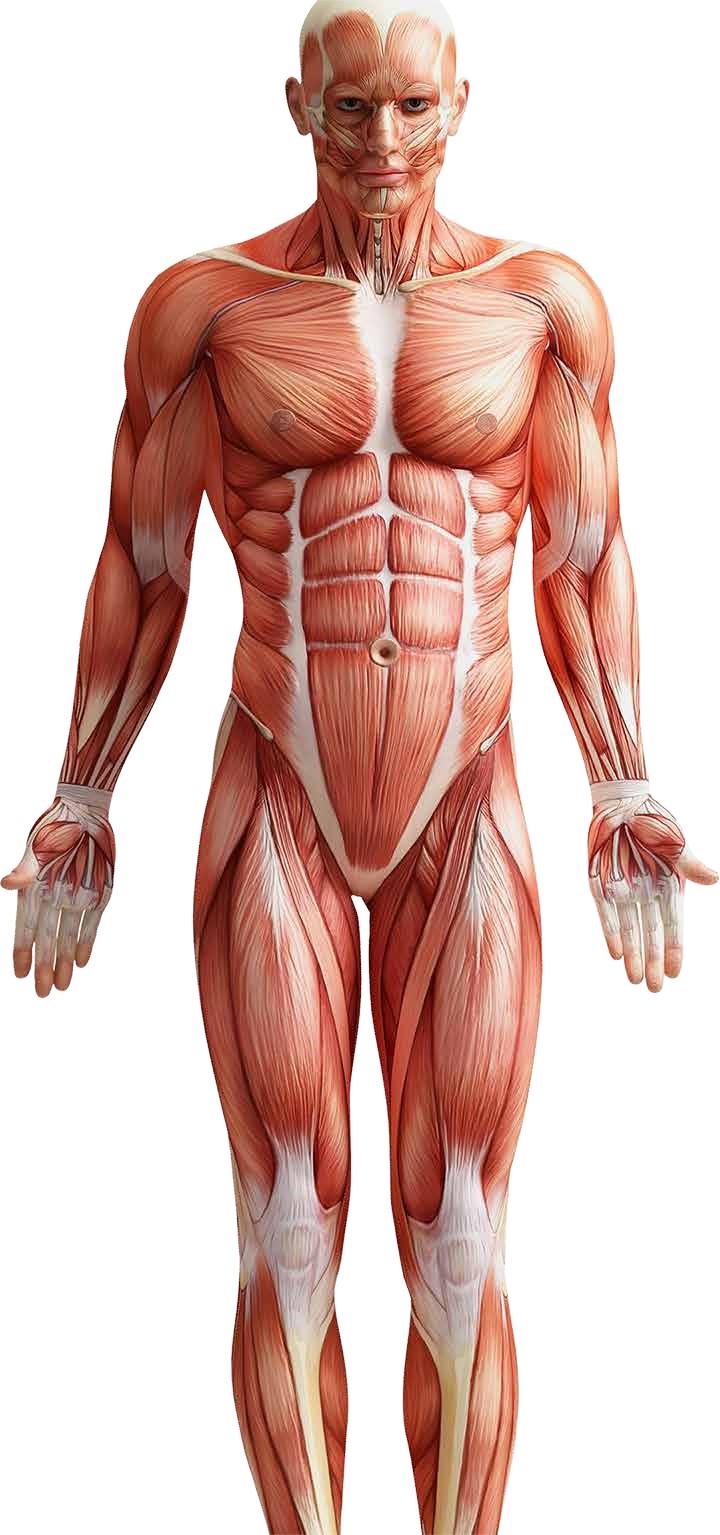
- Loss of Muscular Mass and Strength
- Reduction in Bone Density
- Loss of Skin Elasticity
- Hair Loss/Male Pattern
- Baldness
- Erectile Dysfunction
- Depression
- Fatigue
- Loss of Concentration or Memory
- Weight Gain
- Gynecomastia
- Hot Flashes
- Lower Sex Drive
- Urinary Problems
- Sleep Problems
- Irritability
- Night Sweats
- Hypogonadism
- Adrenal Fatigue
- Thyroid Health
There is a syndrome called Irritable Male Syndrome, or IMS, that’s caused by low testosterone. It is not just having a low libido. This syndrome includes emotional withdrawal, lack of motivation, aggression, personality changes, and anxiety. Irritable Man Syndrome can also present in self-destructive activities including gambling, alcoholism and workaholism.
Sound like you? Low testosterone affects over 13.8 million men in the US. Many of these men are in their 30s and even 20s due to hypogonadism.
Low T effects go beyond sex drive and mood. Testosterone deficiency increases the risk for cardiovascular disease, type 2 diabetes, and bone fractures. Low testosterone increases mortality risk.
800 men were followed for 50 years and the men with the lowest testosterone levels had a 33% greater chance of death, from all causes, than the group with the highest testosterone levels. Another study showed that men with low testosterone had 88% higher mortality levels than men with normal testosterone.
Hormone Therapeutics aims to help people looking to improve and optimize their health through natural means or through the guidance of our physicians.
Don’t miss out our free weekly tips and news on Low T, hormone balancing, healthy living, nutrition and a lot more.
Want more? 
Sign up today and Get our ebook, ‘Naturally Increase Your Testosterone Levels’ absolutely FREE.
Wondering About Low T? Here are the Low Testosterone Symptoms You Should Know
Saleamp Design September 30th, 2016
Posted In: Low T Info
Tags: Adrenal Fatigue, Andropause, Baldness, depression, erectile dysfunction, fatigue, gynecomastia, Hair Loss/Male Pattern, Hot Flashes, hypogonadism, irritability, irritable male syndrome, Loss of Concentration or Memory, Loss of Muscular Mass and Strength, Loss of Skin Elasticity, low t, low testosterone, low testosterone symptoms, Lower Sex Drive, male sexuality, Night Sweats, Reduction in Bone Density, Sleep Problems, testosterone deficiency, Thyroid Health, Urinary Problems, weight gain
Aromatase inhibitor benefits and side effects as part of Testosterone Therapy
Any significant research into TRT will likely also discuss aromatase inhibitor and estrogen management. You will definitely find this on the ‘Bro-Science’ bodybuilding sites focusing on bulking and supraphysiological dosages of testosterone and other anabolic-androgenic steroids that aromatize to estrogen and estradiol.
What is an aromatase inhibitor and what does it do?
Aromatase is the enzyme complex that converts androgens like testosterone into estradiol in men. Weight gain and aging increase the risk for testosterone conversion into estradiol. Estradiol is the “bad estrogen”, responsible for issues including (often) prostate issues, gynocomastia and erectile/libido/hormonal problems. Men find aromotase in their fat cells and as they expand our estradiol will find itself increasing at the same time our testosterone levels dwindle.
An aromatase inhibitors binds to aromatase, disabling it.
Why take an aromatase inhibitor?
AIs will reduce Estradiol levels. Symptoms of high estradiol include gynecomastia (male breast development and enlargement) and edema (fluid retention in the extremities).
Avoid or Reverse Gynecomastia – Estradiol plays a major role in gynocomastia and an AI like Arimidex (anastrozole) – occasionally letrozole is used – is quite effective in managing estradiol levels. The most important thing is to blood test and measure the estradiol levels and look at is on it’s own and as a % of Total Testosterone levels. if a man goes over a total testosterone of about 600 ng/dl, he will very likely need an aromatase inhibitor. The symptoms for elevated estradiol can mimic those for low testosterone, including mood issues, low libido, erectile dysfunction and other estrogenic side effects.

Did you really want to see a before pic?
Clinical research has looked into the use of aromatase inhibitors as an option to testosterone replacement in older men, and to delay bone closure in adolescent boys who are short, to allow them to gain more height.
Is Estradiol important? Role in men of Estradiol:
Since Estradiol is known as a female hormone and elevated levels can cause gynecomastia or edema, many men believe they need to eliminate or suppress it. This is not true, the body produces estrogens in men because we need it.
Estradiol is important in determining bone mineral density in men. Low levels may lead to bone loss and osteoporosis in elderly men. Low estradiol levels increase fat and decrease sex drive and erectile function.
We do not know the optimal estreadiol range but do know that low levels are not good. We also believe taking anastrozole without clinically diagnosed high estradiol levels and symptoms (gynecomastia and edema) can be counterproductive for men on testosterone therapy. Get your advice from a trained HRT/TRT physician and not someone in the gym or a “Bro-science” website.
Potential side effects of Aromatase inhibitors
Aromatase deficiency has been linked to increased insulin resistance, which is a precursor to type 2 diabetes. Animal studies have shown that an absence of aromatase in male rats increases insulin resistance as well as body fat, and “fatty liver” develops. When young, healthy men were given an aromatase inhibitor, they developed slightly increased body fat, particularly within the waist (i.e., intra-abdominal fat). This type of fat is associated with the development of metabolic syndrome, which includes insulin resistance.
Patients with low testosterone should be wary of automatically using aromatase inhibitors, due to a number of potential metabolic effects. For the AAS using bodybuilder, aromatase inhibitors can be necessary to combat aromatization from supraphysiologic testosterone and other AAS dosages. The most important thing is to work under the guidance of a trained HRT/TRT physician and get tested regularly.
Aromatase inhibitor benefits and side effects as part of Testosterone Therapy
Saleamp Design September 13th, 2016
Posted In: Low T Info
Tags: aromatase, benefits to your body, erectile dysfunction, estradiol, estrogen, hormone replacement therapy, hypogonadism, low t, low testosterone, sex drive, testosterone
Revealed: How Testosterone Converts to Estrogen to Battle Depression
 A recent study at the George Washington University, found that men diagnosed with borderline low testosterone levels had much higher rates of experiencing depression and depressive symptoms compared to the general population. In the study, 56% of the male participants were diagnosed with depression while 25% were already taking medications for this.
A recent study at the George Washington University, found that men diagnosed with borderline low testosterone levels had much higher rates of experiencing depression and depressive symptoms compared to the general population. In the study, 56% of the male participants were diagnosed with depression while 25% were already taking medications for this.
Produced in the testicles, testosterone helps drive a man’s production of sperm, muscle strength and mass, sex drive, facial and body hair and bone density. Men who don’t produce the normal amount of testosterone may have a condition called hypogonadism.
To Ward off Depression, Testosterone Converts to Estrogen
Testosterone, the male sex hormone, seems to have anti-depressant like properties, yet the exact mechanism of its effect still remained unclear.
In 2012, Mohammed Kabbaj and Nicole Carrier, both researchers at the Florida State University College of Medicine, are working to elucidate such mechanisms. They have found out that a particular pathway called MAPK pathway in the hippocampal region, a part of the brain, involved in regulation of stress responses and memory formation, plays a vital role in mediating the effect of testosterone.
Low Testosterone and Depression
Between men and women, females are typically more prone to suffer from depression, however, men diagnosed with low T or hypogonadism are also predisposed to depression or anxiety. Fortunately, hormone replacement therapy has been found to effectively enhance mood.
While it may seem that much is already known, it’s still very important to fully understand where and how these effects are happening so that scientists can develop better, targeted antidepressant therapies.
In the study, Kabbaj performed several experiments in neutered male rats and found that the rats manifested depressive-like behaviors that were then reversed by supplemental testosterone replacement.
According to the researcher, in order to protect males with hypogonadism from developing depression, testosterone in the brain must be converted to estrogen. Kabbaj stated a certain brain enzyme ‘mediates’ the conversion of testosterone to estrogen. Furthermore, inhibiting such enzyme in the hippocampal area has prevented the antidepressant effect of testosterone. This makes the conversion to estrogen vital.
In this study, the antidepressant effect of supplementing low testosterone to normal levels has only manifested in male rats, not in female rats.
Do You Need Help?
Hormone Therapeutics is the leading national company assisting men who want to get their lives back through Hormone Replacement and Testosterone Replacement therapy. Our local physicians are ready to treat you anywhere in the entire country. Hormone Therapeutics is pioneering an easier, cost efficient and more private way for you to work with our clinical advisors and physicians from the privacy of your home or office after your local physical exam confirms you have one of the symptoms of Low T.
Contact us today and our clinical advisors will work with you on a hormone therapy program that may include prescribed hormones, exercise, nutrition and sleep programs to reclaim your vitality.
Revealed: How Testosterone Converts to Estrogen to Battle Depression
Saleamp Design March 29th, 2016
Posted In: Low T Info
Tags: antidepressant, bone density, depression, hair loss, hormone replacement therapy, hypogonadism, low t, muscle strength and mass, sadness, sex drive, sex hormone, sperm, testosterone, testosterone levels
Estrogen Monitoring – Estradiol Must Be Monitored During Testosterone Replacement Therapy
What is testosterone replacement therapy? How does Estrogen effect my testosterone levels or how I feel? What is Estradiol or E2 and what do I need to know about estradiol monitoring? Why is it important to monitor estrogen level before getting TRT? What if my estrogen level is elevated, should I still be treated or not? What are the downsides of TRT? Is it dangerous?
These are some of the most common questions most men ask during testosterone replacement therapy. Read below to know more about this treatment.
What is Testosterone Replacement Therapy?

Testosterone replacement therapy (TRT) is a medical treatment that aims to restore hormone levels back to a normal range without any significant side effects or safety concerns. More importantly, it should alleviate the symptoms associated with the hormone deficiency.
The ultimate goal of TRT is to regain and maintain the highest quality of life, compress major illnesses and reduce disability; and add life to years.
Estradiol Monitoring: Why is it important to monitor estrogen level before getting Testosterone Replacement Therapy?
As a Man’s testosterone level decreases, typically his estrogen levels are increasing. Testosterone replacement therapy can also lead to elevations in estrogen level in some men who convert a portion of their testosterone supplementation to Estradiol. In some cases, the level could be above the normal range. While TRT is not about jacking up a man’s testosterone, it should also not be about suppressing his Estrogen or Estradiol/E2.
When the estrogen levels increase, a person may develop breast or nipple tenderness (gynecomastia), which may call for the use of aromatase inhibitors (AIs) – a potent estradiol-suppressor that is primarily used as an adjuvant treatment for breast cancer by lowering estrogen and thereby reducing the stimulation of estrogen receptors in such disease.
Some doctors prefer stopping TRT first when symptoms of high estrogen levels are becoming apparent rather than managing it through AIs. Many doctors, and Broscience websites, promote the absolute use of aromatase inhibitors during TRT despite the absence of symptoms or signs of increase estrogen or Estradiol. They believe that keeping a relatively low estrogen concentrations can boost the effectiveness of TRT and improve male health. This approach, however, can cause other problems.
We at Hormone Therapeutics follows medical protocols and believe in treating the symptoms and the blood tests. The Total Testosterone:Estradiol ratio needs to be kept below 5%. We believe in monitoring and maintaining this level.
What if my estrogen level is elevated, should I still be treated or not?
Estrogen levels in some men administered with aromatase inhibitors have levels that sink below 40pmol/L, which may pose increased risk on bone health, energy and emotional health.
Perhaps the only study that can compare the use of TRT with and without anastrazole were in men diagnosed with hypogonadism, hyposexuality and epilepsy. The first trial revealed a positive effect on the sexual interest with the addition of testolactone therapy.
On the second trial that involves men reported an increase in libido among men treated with anastrazole and testosterone alone. However, this trial didn’t attain statistical significance because some men from the T-alone group also reported increase in sexual interest despite an increase in their estrogen.
However, these studies must be taken with caution because it isn’t clear how the group compares with the bigger group with low-T. This group were also treated with antiseizure drugs which increases SHBG (Sex hormone-binding globulin) – a glycoprotein that attaches to the two sex hormones, estrogen and androgen.
Therefore, there is no solid evidence to support the claim that the use of aromatase inhibitor in conjunction with TRT provides benefits more than that provided by TRT alone.
Do You Need Help?
Hormone Therapeutics is the leading national company assisting men who want to get their lives back through Hormone Replacement and Testosterone Replacement therapy. Our local physicians are ready to treat you anywhere in the entire country. Hormone Therapeutics is pioneering an easier, cost efficient and more private way for you to work with our clinical advisors and physicians from the privacy of your home or office after your local physical exam confirms you have one of the symptoms of Low T.
Contact us today and our clinical advisors will work with you on a hormone therapy program that may include prescribed hormones, exercise, nutrition and sleep programs to reclaim your vitality.
Estrogen Monitoring – Estradiol Must Be Monitored During Testosterone Replacement Therapy
Saleamp Design March 22nd, 2016
Posted In: Testosterone Therapy
Tags: anastrazole, breast enlargement, estradiol, estrogen, gynecomastia, hormone replacement, hypogonadism, low t, low testosterone, nipple sensitivity, testosterone, Testosterone replacement therapy, testosterone therapy, TRT
What are the indicators that someone needs Testosterone Replacement?
What are your Total Testosterone and Free Testosterone levels? Do they fall within the norms, are low or high, as described in our other blogs and sections?
What are the indicators that someone needs Testosterone Replacement?
Saleamp Design March 17th, 2015
Posted In: Low T Info, Uncategorized
Tags: androgen deficiency, erectile dysfunction, fatigue, Free Testosterone levels, Hormone Replacement physician, hypogonadism, irritability, low libido, Low T symptoms, low testosterone levels, symptoms of low testosterone, testosterone replacement, Testosterone replacement therapy, testosterone therapy, Total Testosterone
What are Normal Testosterone Levels?
Treating a patient solely based on testing levels is not a proper way to evaluate and treat a patient, however, understanding the normal ranges for a patient is an important piece to the puzzle. What are Normal Testosterone Levels? The normal level of Total Testosterone is often described as between 350-1200 ng/dl (270-1070 ng/dl in another study), however, this range is not associated with age and everyone agrees that men have peak testosterone levels in their early twenties and then slowly decline at 1-2% per year after that. Normal values will vary by lab as will the reference range. In the US, ranges are seen in nanograms per deciliter.
What are Normal Testosterone Levels?
Saleamp Design March 16th, 2015
Posted In: Health & Wellness, Low T Info, Uncategorized
Tags: androgen deficiency, erectile dysfunction, fatigue, Free Testosterone levels, Hormone Replacement physician, hypogonadism, irritability, low libido, Low T symptoms, low testosterone levels, symptoms of low testosterone, testosterone, Testosterone replacement therapy, Total Testosterone
The Causes of Low T in Men
Low T is generally due to andropause and the body producing less testosterone. There are other causes of low t, however, why the body might be producing less testosterone than what it requires to perform all of its bodily functions optimally. Some of the causes of low testosterone include:
The Causes of Low T in Men
Saleamp Design February 6th, 2015
Posted In: Low T Info
Tags: aging, anabolic steroids, causes of low t, causes of low testosterone, Chemotherapy, convert testosterone to estrogen, create testosterone, drugs, histiocytosis, HIV, hypogonadism, hypothalamus, inflammation, low t, low t in men, Low T Issues caused by Aging, low testosterone in men, medications, obesity, oxycontin, performance enhancing, pituitary glands, sarcoidosis, shrinkage, steroid abuse, steroids, testicle shrinkage, testosterone, testosterone production, testosterone therapy, tuberculosis, vicodin


